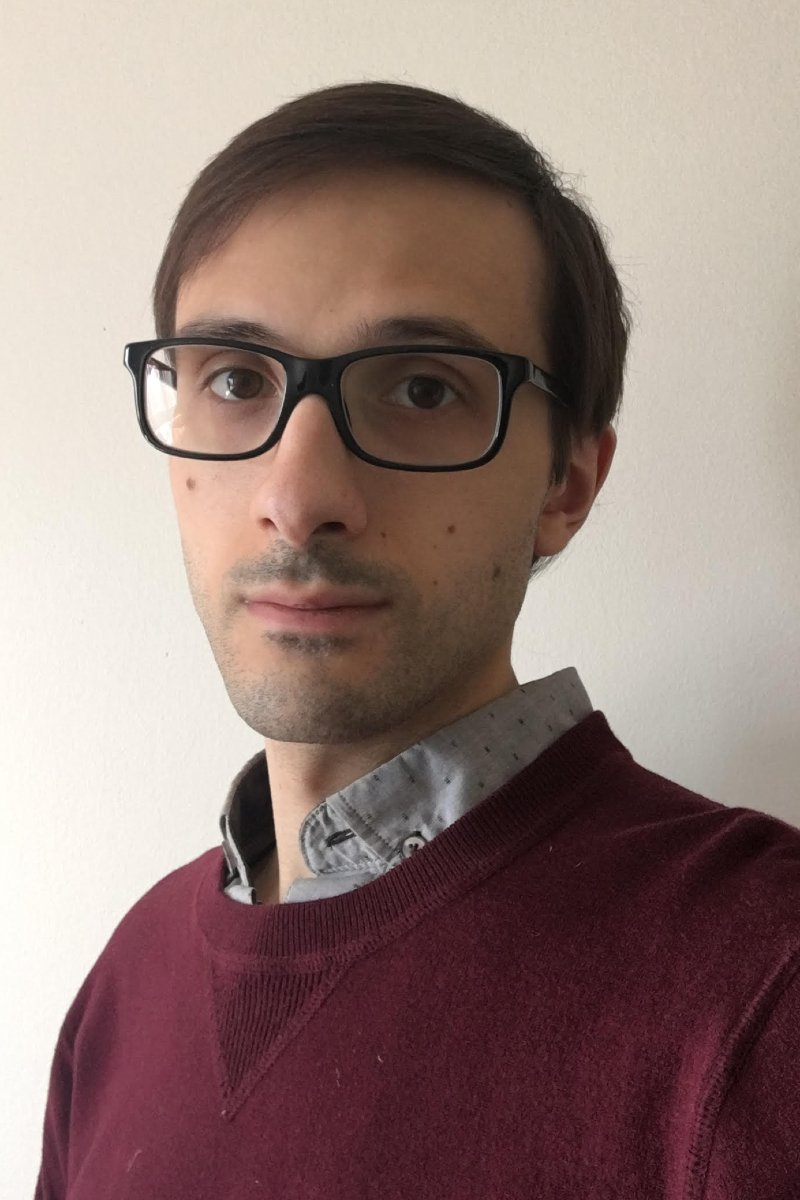
Matthew Pietrosanu is a statistical consultant in the TCC, providing statistical support to researchers as well as to graduate students within the department. Photo supplied.
Staff in the Faculty of Science’s Department of Mathematical and Statistical Sciences work hard to demystify the world of statistics. Home to the Training and Consulting Centre (TCC), the department offers services and consultation to researchers and students across campus.
Matthew Pietrosanu is a statistical consultant in the TCC, providing statistical support to researchers as well as to graduate students within the department. Pietrosanu is also a graduate student, completing his PhD studies in the Department of Mathematical and Statistical Sciences under the supervision of Bei Jiang, assistant professor, and Linglong Kong, associate professor.
The countless and invaluable contributions of staff make the world go round in the Faculty of Science, and we are thrilled to introduce you to Matthew Pietrosanu. Hear more about his work.
Job title and area:
I am one of the statistical consultants in the Training and Consulting Centre (TCC) in the Department of Mathematical & Statistical Sciences. I'm also a PhD student, completing my studies under Bei Jiang and Linglong Kong.
How long have you worked at the Faculty of Science?
I've worked as a statistical consultant in the TCC since fall 2017.
What is a typical day on campus like for you?
It's getting harder and harder to remember regular days on campus!
On a typical day, in addition to my usual graduate work, I'll run a couple consulting sessions in the TCC. Researchers from around the university (mostly graduate students and faculty members) come in for free initial consultations to discuss statistical aspects of their research. I'll typically help my clients frame their research hypotheses in a statistical way, discuss appropriate analytic methods, or assess and interpret results from previous analyses. It's common for these researchers to require more involved statistical support, so on the side I'm often analyzing client data or reviewing a manuscript before it gets submitted to a journal.
The TCC is intended to be a support for students in our department as well. Trainees in the TCC, usually course-based master's students, sit in on client sessions to learn about applied research methods and effective communication.
How has your work changed during the COVID-19 pandemic?
While statistical analysis translates off-campus fairly easily, it was a bit more challenging to shift all of our client interactions online. Technology-wise, we revamped the TCC's background scheduling system to manage online video consulting sessions. Everyone has been affected by the shift online and we've all worked through the (inevitable) technical surprises in stride.
Working online definitely makes communication more difficult: even with virtual whiteboards, it's harder to facilitate discussions with clients. By being forced to adapt, all of the TCC's consultants and trainees have improved over this period and feel more comfortable with remote consulting. Personally, I've taken it as a chance to reflect on my ability to manage meetings and my verbal communication skills, such as asking "good" questions.
What's the most common question people ask you about your job?
The most common question I get from TCC trainees in my consulting sessions is, "Where did you learn to do this?" There's a huge variety of statistical methods in research and there's no way a graduate program curriculum can cover everything. My answer is that it takes time, exposure, and self-motivated study to become confident working as a consultant or applied statistician. The same is true of communication. In my department, we're used to communicating with other mathematicians and statisticians, so it's a bit of a culture shock when we can't always assume detailed knowledge about mathematical or statistical techniques. Statisticians are problem-solvers, so I approach communication as another layer in the puzzle of solving a client's problems.
Favourite memory from work?
My favourite memory is actually a recent one. For a couple months this spring, I organized and mentored a group of four trainees to compete in the Statistical Society of Canada's annual case study. These students had no previous experience with the specific topic or case studies in general. Through their hard work and our numerous learning sessions on time series analysis and poster design, our team developed and presented a model for predicting sector-specific annual electricity demand in Ontario. In a first for the TCC, our team won the national competition! I am extremely proud of the result and the team's hard work. This experience shows how beneficial experiential learning opportunities can be to our students, and I'm excited to continue incorporating that into my work in the TCC.
Favourite thing about working at the Faculty of Science?
I'm fascinated by the variety of research that goes on in the Faculty of Science and its spirit of collaboration. I'm fortunate to get a very broad picture of this in the TCC. I've come to appreciate the role that statisticians play in the research process and the skills needed to effectively contribute in interdisciplinary settings. My work in the faculty has shaped my interest in sharing statistical knowledge and helping other statisticians develop these professional skills as well.